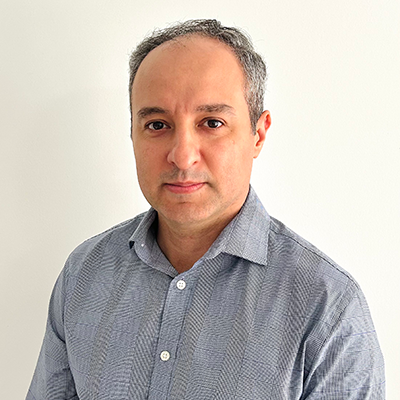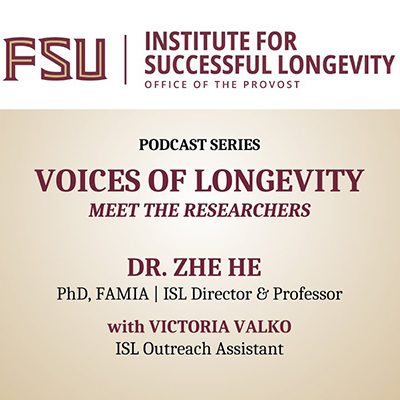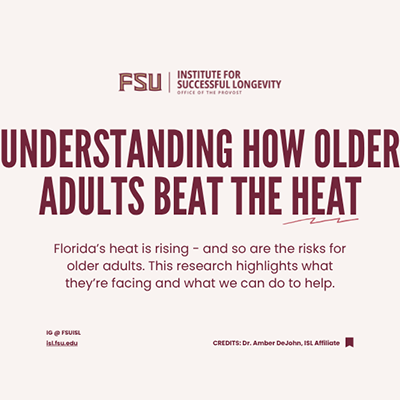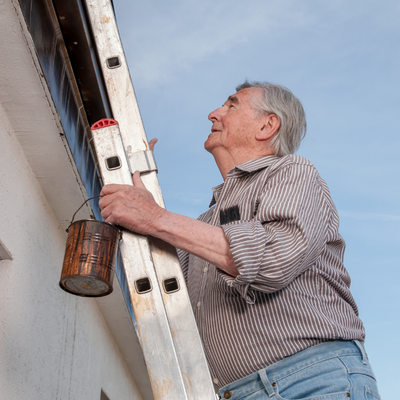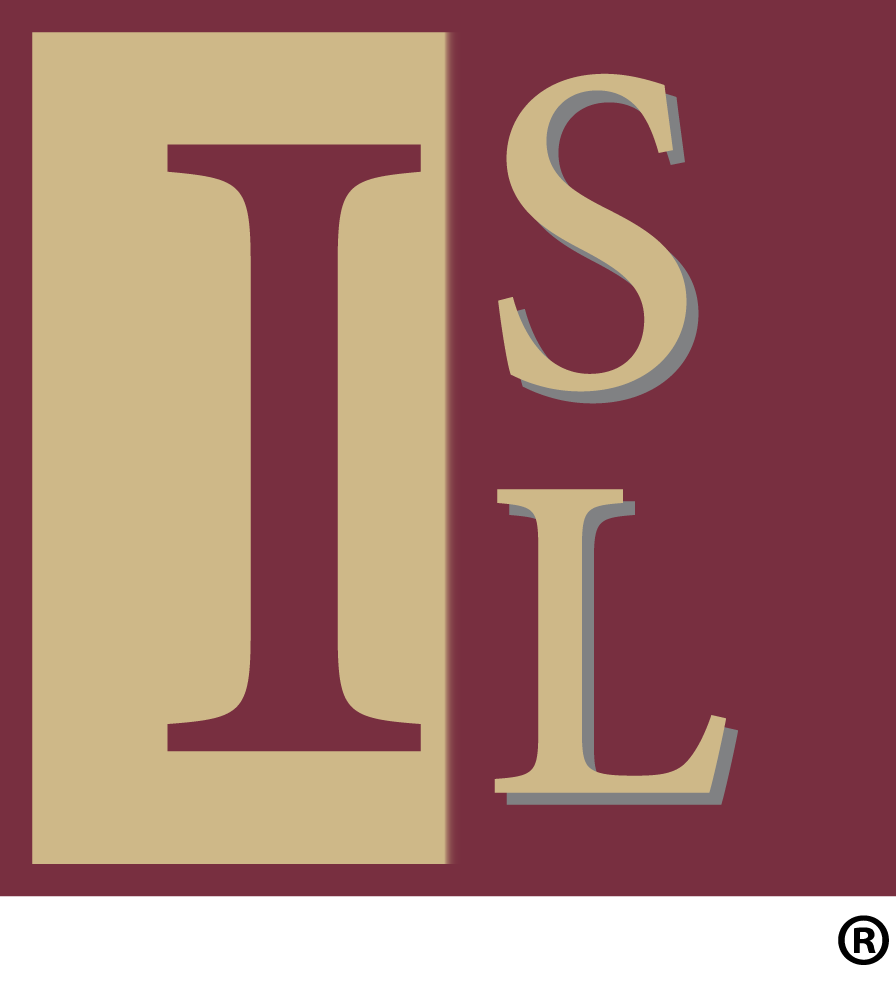 The Institute for Successful Longevity conducts research into how to live longer, stay active and be fully engaged in life. The institute takes a multidisciplinary approach to better explore the complexities of life as an older individual.
The Institute for Successful Longevity conducts research into how to live longer, stay active and be fully engaged in life. The institute takes a multidisciplinary approach to better explore the complexities of life as an older individual.
Over the last century Americans witnessed tremendous gains in longevity, but successful longevity is more than living to a great, old age. It is about living well as we grow older.
Living well means many things, so we draw on the talents of researchers in many fields across the Florida State University campus to look at health, cognition, recreation, mobility, financial security and other concerns.
In the past, aging was seen as a problem, a condition or malady. Today at FSU’s Institute for Successful Longevity, we see aging as a natural stage of life, and our researchers look at all the components of an older person’s experience as we pursue the causes of age-related cognitive and physical decline and translate those discoveries into practices and interventions that slow or halt these changes.
Our Goals
To understand the mechanisms of age-associated disorders and functional and cognitive declines.
To develop the best holistic interventions to counter those declines.
To disseminate this knowledge to the community, to aging adults and to their care-givers.
To cultivate the scientific, social, and political leadership on this issue that will engage the nation.


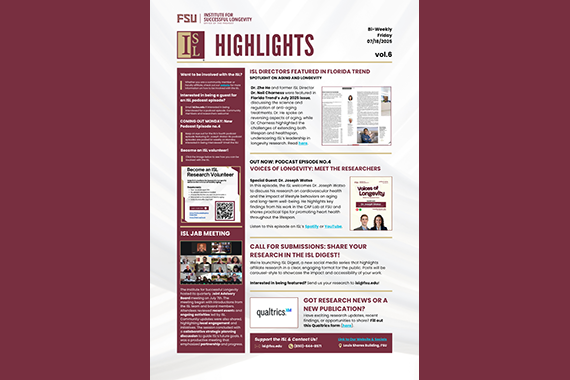
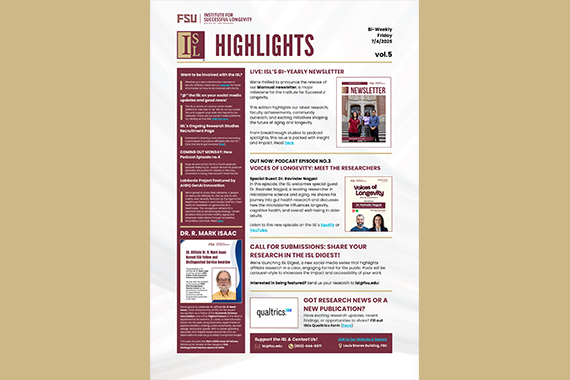


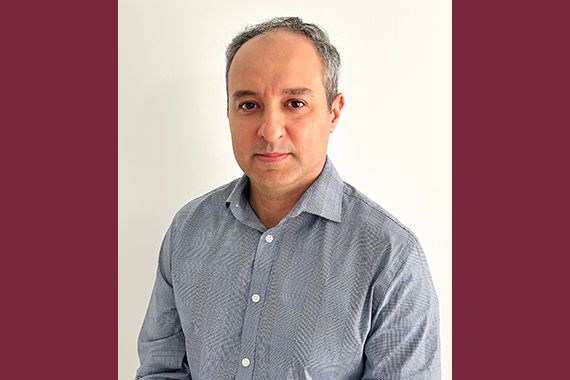
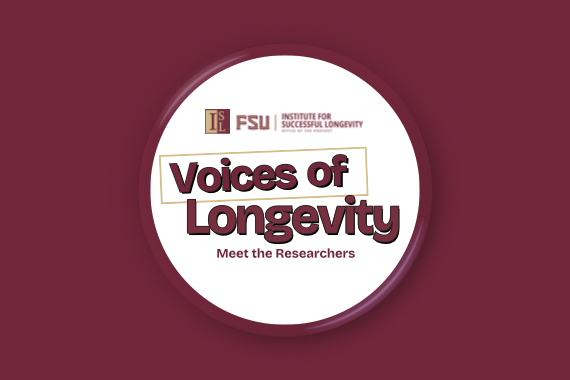
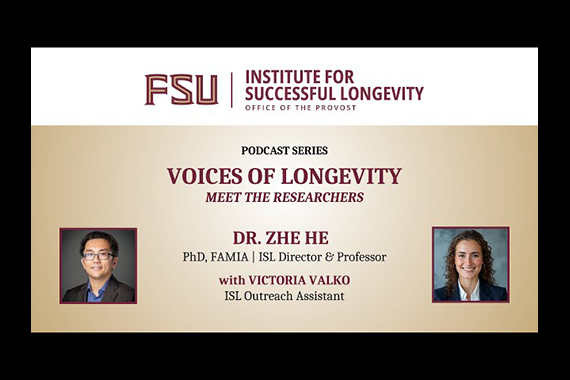
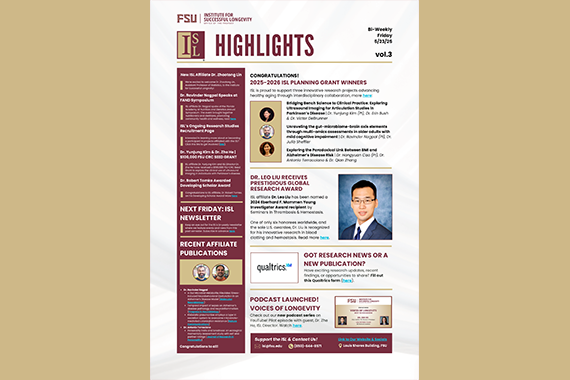
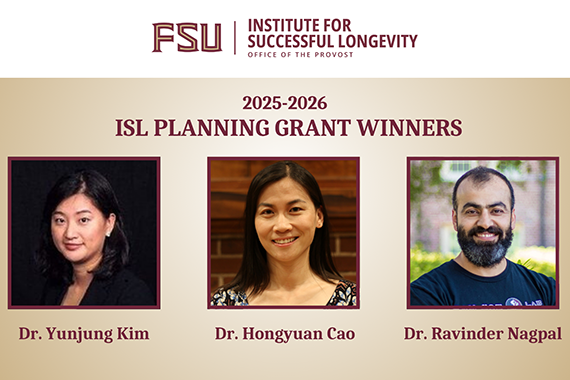
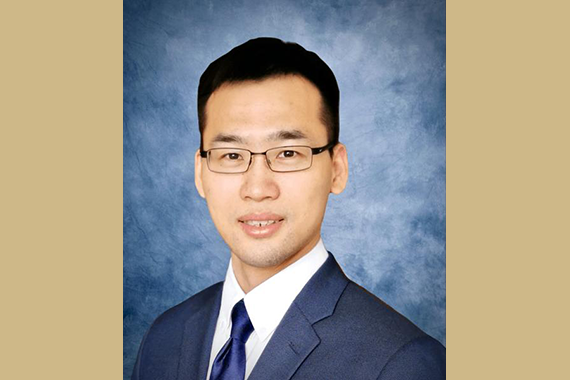
 The Institute for Successful Longevity conducts research into how to live longer, stay active and be fully engaged in life. The institute takes a multidisciplinary approach to better explore the complexities of life as an older individual.
The Institute for Successful Longevity conducts research into how to live longer, stay active and be fully engaged in life. The institute takes a multidisciplinary approach to better explore the complexities of life as an older individual.